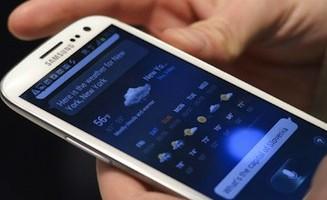Mobile-App Economy Going Strong in 2016
The mobile-app economy generated 1.66 million jobs in the United States by December 2015, according to a new report from the Progressive Policy Institute (PPI). That’s up from 750,000 jobs in 2013. The PPI marks Apple’s 2007 unveiling of the iPhone as the beginning of the app economy, even though Apple didn’t launch its App Store until July 2008. “It’s remarkable how iOS and the App Store launched an entirely new industry in less than a decade,” the report noted. “Arguably, no other innovation has had this transformative of an effect on the domestic and global economy in terms of scale and speed, achieving an unprecedented level of adoption in such a short time.” Roughly 87 percent of all app-economy jobs involve iOS, PPI noted, while 70 percent center on Android; BlackBerry and Windows Phone follow with 6 percent and 3 percent, respectively. (The total adds up to well over 100 percent because developers often work in multiple OS ecosystems simultaneously.) The Institute also believes that the rise of the Internet of Things will only accelerate mobile-app usage: “As more and more objects and physical processes are connected to the Internet, people will increasingly use mobile apps as their interface to their homes, their cars, their schools, and their health providers.” More than a fifth of app-economy jobs (22 percent) are in California, with New York coming in second with 9.4 percent, Texas in third with 7.3 percent, Illinois in fourth with 5.1 percent, and Massachusetts rounding out the top-five with 4.1 percent. The app economy is actually quite widespread from a geographic perspective, powering tens of thousands of jobs in states not exactly known as technology hubs, including Tennessee (20,100 jobs in December 2015) and Colorado (22,400 jobs). Part of the reason behind that pervasiveness, of course, is the ability to work on apps from pretty much anywhere with a Web connection; just as long as you can upload your work to the app store of your choice at the end of the process, you could pound out code from the lower deck of a shrimping boat or atop a mountain for all Apple or Google care.



